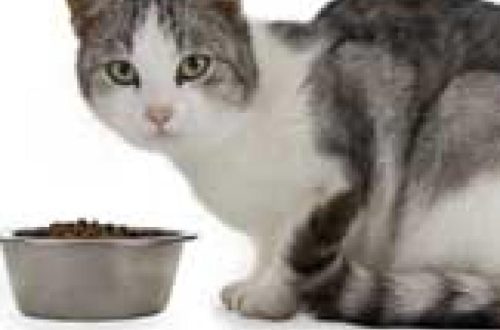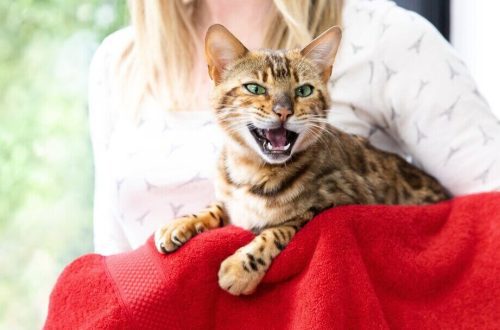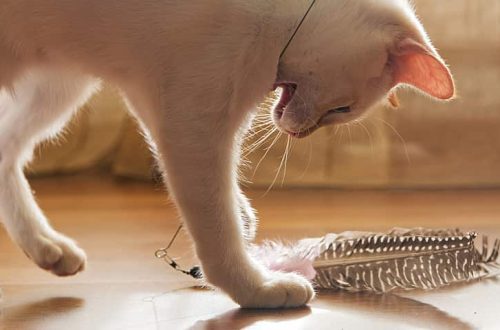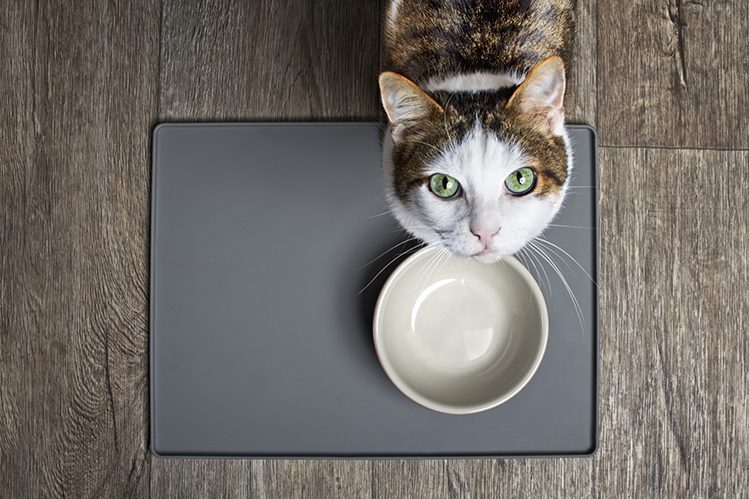
Why is the cat not eating?
Causes of gluttony in cats can be very different – due to illness, age, hormonal changes, psychological problems. One way or another, the cause must be found and eliminated. If the cat does not eat enough food at standard portions, this is definitely not normal.
Conventionally, the reasons for the lack of saturation can be divided into two groups: physiological and psychological. First, it is worth excluding physiological causes, because. they are most often seen in hungry cats.
But first, make sure your pet’s diet is right. A cat can be “hungry” all the time if the food is not suitable for her or her eating behavior is disturbed.
This may happen if:
- the owner did not comply with the feeding norm,
- overdid it with treats,
- mixed prepared feed and self-cooked food,
- if the line of food or food prepared by the owner does not suit the cat.
In this case, the pet does not receive the necessary nutrients and remains hungry.

Physiological causes
These include:
- Age.
Young individuals move a lot. In addition, their body is just being formed, and this is also energy-consuming, so teenage cats can eat more than adult relatives.
Older cats also need special feeding due to slow metabolism, but it is important to ensure that the pet does not gain excess weight.
- Physical activity.
Cats that roam freely outside rather than sitting at home 24 hours a day need more food than their couch potato counterparts.
- Hormonal disorders.
Disturbances in the production of hormones lead to a constant feeling of hunger in cats. Against this background, the four-legged can develop diabetes, hypohyperthyroidism, kidney failure and other diseases. If your pet not only eats food greedily, but also approaches the water bowl too often, something is definitely wrong here.
Only a veterinarian can help you with this situation.
- Helminths.
Parasites in the pet’s body provoke poor health in the mustachioed-striped. Pay attention, if the cat eats more than the norm, but does not gain weight or even loses weight – there is probably a problem with helminths. Vomiting, diarrhea or constipation are also considered signs of the presence of worms.
- Malignant neoplasms and problems with the pancreas.
These pathologies do not allow nutrients to be absorbed, which is why the cat feels constant hunger.
- Pregnancy.
Expectant mothers need special nutrition. Food should not only be enriched with vitamins and trace elements, it should also be a little more than usual. But it is not worth overfeeding a pregnant female, so that she does not have complications during childbirth.
- Medications.
There are a number of drugs that dull the feeling of satiety. And because of them, the pet simply does not understand that it has already eaten. It can be hormonal, anticonvulsant and other drugs. With such medications, an increased feeling of hunger is included in the list of side effects.
- Cold.
In cold weather, cats have to work harder to keep their body warm. This is where the energy loss comes from. To make up for it, in winter, cats can approach the bowl more often and beg for treats.
The owner of the purr needs to slightly increase the amount of food in the winter, as well as increase the nutritional value of cat food.
- Stretching of the walls of the stomach.
If a cat is fed, his stomach will definitely increase. After that, the feeling of fullness will come to him only when he eats 2 or even 3 full servings.
It is best to avoid this and initially do not give the pet too much food and treats. And if he has already become a glutton, it is better to put him on a special diet and carefully control the portion size.
- Psychological reasons.
Convinced that everything is in order with the health of the cat, but she still begs for food? Perhaps the point is in the psychology and experiences of the mustachioed.
- Polyphagia.
Polyphagia is manifested in the fact that a cat, after a long hunger strike caused by illness or stress, pounces on food and cannot feel full for a very long time. So the pet tries to make up for the lack of nutrients.
This can occur at any age, but it is worth sounding the alarm if the pet previously ate normally, and then it seemed to break loose.
- False hunger.
Increased appetite is characteristic not only of people during emotional experiences, but also of cats. For example, a pet may eat more than usual after stress: moving, visiting a clinic, separation from the owner. The cat begins to seize stress in order to distract a little from negative emotions.
- Competition.
Even between friendly cats living under the same roof, competition can arise. A well-fed cat, on principle, will not give a piece of food to its fellow. And the true greedy ones will instantly swallow not only their portion, but they will definitely encroach on the food of their neighbor.
It is better to feed such cats in different rooms so that they do not embarrass each other and calmly eat up.
- Fear of hunger.
This problem is characteristic of cats that once starved and were forced to earn their livelihood hard. More often it is found in stray purrs. Once in the house, such pets cannot stop in any way and continue to eat. And some even hide food for a rainy day.
- Lack of attention.
The frequent absence of the owner of the house and the lack of affection provoke stress in the four-legged, which you want to eat faster. It has been observed that cats that receive enough attention and love from their owners eat normally and do not suffer from overeating.
If everything is fine with the health of the pet, then you will have to consider the psychological side of the issue on your own or together with a zoopsychologist or felinologist.
The cat may not eat up if the offered food does not suit her. Problems may be as follows:
- The cat does not like the taste of food and she does not eat the norm.
- The food is poorly digested.
- The composition of the feed is not balanced.
- The composition includes low-quality components. For example, the wording “meat products” should alert you. In this case, it is not clear what kind of meat was used in production and how nutritious it is.
For cats, it is recommended to choose food of at least premium class. In the first place in the composition should be meat, not cereals. Moreover, the manufacturer must indicate what kind of meat and in what quantity is used.
If you see fresh meat in the first place in the composition, then it should be dehydrated (dry).
If your cat is not eating well, reevaluate your food choices and make sure you are feeding the right amount. Perhaps this is the error.
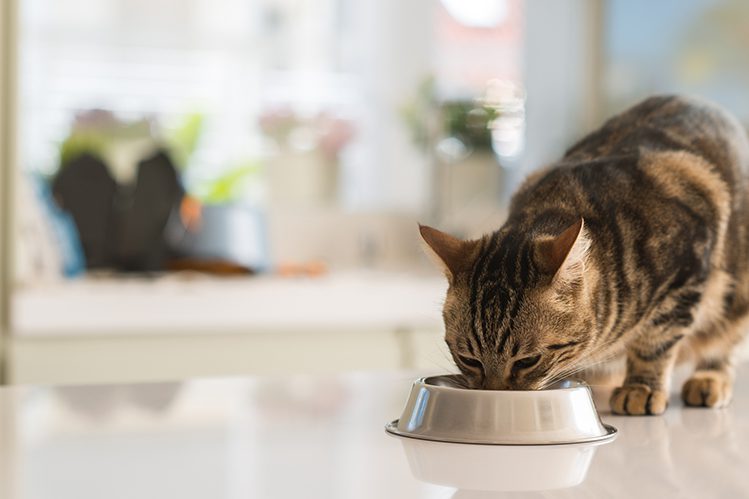
Among cats, as among people, there are those who simply love to eat – nothing can be done about it. But in some cases, it is better not to postpone a visit to a veterinarian.
Contact the clinic if, along with gluttony, your cat has:
diarrhea and vomiting;
weight loss;
lethargy and apathy;
gastrointestinal disorders;
deterioration in the quality of wool;
fever;
discharge from the nose and eyes.
And you certainly shouldn’t let things take their course if the pet hasn’t pounced on food before, as if he had escaped from a hungry land.
In case of any oddities, you should immediately consult with a specialist and correct the eating behavior of your pet.



